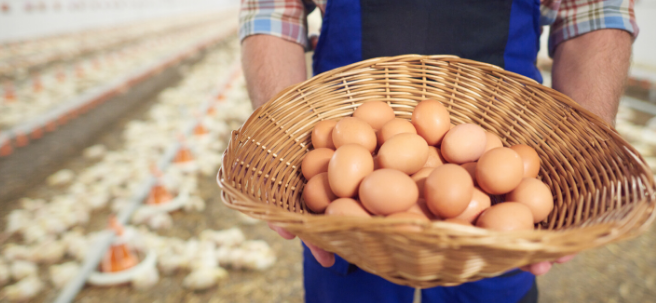
09 de June de 2020
June 9, 2020. On May 20, the European Commission adopted two strategies within the framework of the "European Green Deal," the EU's roadmap for: Promoting the efficient use of resources and moving toward a clean and circular economy, and restoring biodiversity and reducing pollution.
- The Farm to Fork strategy is part of the European Green Deal , the EU's roadmap for making the EU economy sustainable.
- Its goal is to make food systems fair, healthy, and environmentally friendly.
 |
These agreements are, on the one hand, the "Biodiversity Strategy" and, on the other, the "Farm to Fork Strategy," which promote a fair, healthy, and environmentally friendly food system. The two strategies reinforce each other, bringing together nature, farmers, businesses, and consumers for the benefit of a sustainable and competitive future.
“ From farm to table ”
The current COVID-19 crisis has highlighted society's dependence on the food chain. Food systems cannot be resilient to a pandemic if they are not sustainable . Currently, the food chain accounts for nearly a third of global greenhouse gas (GHG) emissions, consumes large amounts of natural resources, causes biodiversity loss and negative health impacts, and does not allow for fair economic returns for all actors in the chain, particularly primary producers.
Hence, the transition towards a sustainable food system must necessarily involve:
- Foods with a neutral or positive environmental impact : they must help mitigate climate change and adapt to its impacts, as well as reverse biodiversity loss.
- Ensure food security, nutrition, and public health by ensuring that everyone has access to sufficient, safe, and nutritious food.
- They must be affordable , while generating fair economic returns.
Concrete measures
The strategy establishes regulatory and non-regulatory initiatives, with the common agricultural and fisheries policies as key tools to support the new model. The European Commission will therefore present a proposal for a legislative framework for sustainable food systems to support the implementation of the strategy and the development of a sustainable food policy.
What specific aspects do the new measures focus on?
- Pesticides
- 50% reduction in the use of chemical pesticides by 2030.
- Excess nutrients
- Reduction of nutrient losses by at least 50%, while ensuring that soil fertility is not impaired.
- Reduction in fertilizer use by at least 20% by 2030.
- Antibiotics
- The Commission will reduce sales of antibiotics for farm animals and aquaculture by 50% by 2030.
- Organic farming
- The Commission will boost the development of EU organic farming with the aim of achieving 25% of total agricultural land under organic farming by 2030.
But beyond legislative issues... How can we raise public awareness about a sustainable food system?
- Creating a healthy environment: It is estimated that in 2017, more than 950,000 deaths in the EU were due to unhealthy diets (one in five). Awareness must be raised about the risk of fatal diseases due to poor diet.
- Environmental impact: food labeling to help consumers choose healthy diets. To this end, mandatory front-of-pack nutritional labeling is proposed, detailing the nutritional, climatic, environmental, and social aspects of food products.
- Preventing food waste: The Commission will propose legally binding targets to reduce food waste across the EU by 2023. And by 2030, halve per capita food waste at the retail and consumer levels.
- Research and innovation: knowledge transfer is essential. The EU is investing €10 billion in the Horizon Europe program to invest in research and innovation projects related to agri-food.
- EU global brand image: Making European food known for its sustainability adds a competitive advantage and opens the market to European farmers. Therefore, the EU will work with third countries and international actors to support a global movement toward sustainable food systems.
If you'd like to learn more about this topic, click here.











